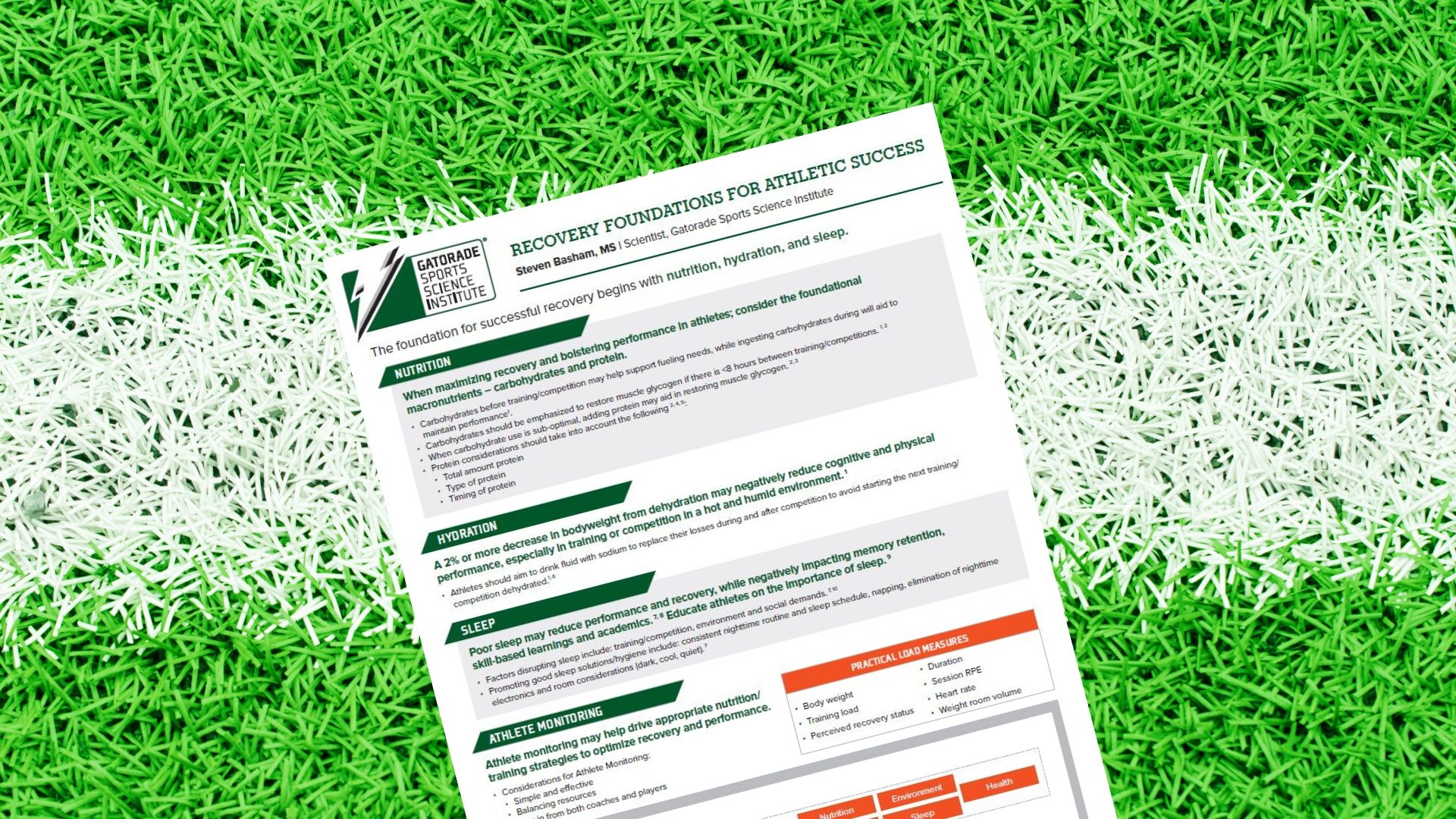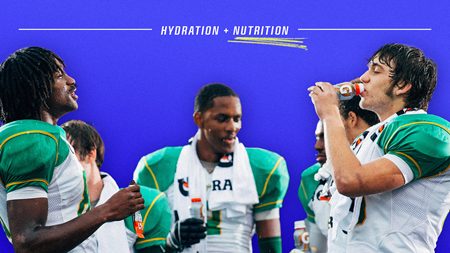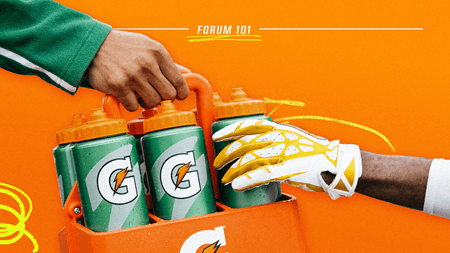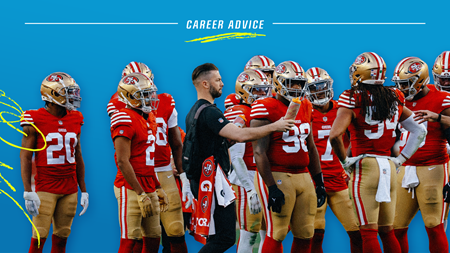Foundation for Successful Recovery
Nutrition
When maximizing recovery and bolstering performance in athletes; consider the foundational macronutrients – carbohydrates and protein.
- Carbohydrates before training/competition may help support fueling needs, while ingesting carbohydrates during will aid to maintain performance.1
- Carbohydrates should be emphasized to restore muscle glycogen if there is <8 hours between training/competitions.1,2
- When carbohydrate use is sub-optimal, adding protein may aid in restoring muscle glycogen.2,3
- Protein considerations should take into account the following: 2,4,5
- Total amount protein
- Type of protein
- Timing of protein
Hydration
A 2% or more decrease in body weight from dehydration may negatively reduce cognitive and physical performance, especially in training or competition in a hot and humid environment. 1
- Athletes should aim to drink fluid with sodium to replace their losses during and after competition to avoid starting the next training/ competition dehydrated.1,6
Sleep
Poor sleep may reduce performance and recovery, while negatively impacting memory retention, skill-based learnings and academics. 7,8 Educate athletes on the importance of sleep. 9
- Factors disrupting sleep include: training/competition, environment and social demands.7,10
- Promoting good sleep solutions/hygiene include: consistent nighttime routine and sleep schedule, napping, elimination of nighttime electronics and room considerations (dark, cool, quiet).7
Athlete Monitoring
Athlete monitoring may help drive appropriate nutrition/training strategies to optimize recovery and performance. Considerations for Athlete Monitoring:
- Simple and effective
- Balancing resources
- Buy-in from both coaches and players
Practical Load Measures
- Body weight
- Training load
- Perceived recovery status
- Duration
- Session RPE
- Heart rate
- Weight room volume


- Thomas DT, Erdman KA, Burke LM. American College of Sports Medicine Joint Position Statement. Nutrition and Athletic Performance. Medicine and science in sports and exercise. 2016;48(3):543-68
- Kerksick CM, Arent S, Schoenfeld BJ et al. International society of sports nutrition position stand: nutrient timing. J Int Soc Sports Nutr. 2017;14:33.
- Heaton LE, Davis JK, Rawson ES et al. Selected In-Season Nutritional Strategies to Enhance Recovery for Team Sport Athletes: A Practical Overview. Sports medicine (Auckland, N.Z.). 2017;47(11):2201-18.
- Witard OC, Garthe I, Phillips SM. Dietary Protein for Training Adaptation and Body Composition Manipulation in Track and Field Athletes. International Journal of Sport Nutrition and Exercise Metabolism. 2019;29(2):165-74.
- Res PT, Groen B, Pennings B et al. Protein ingestion before sleep improves postexercise overnight recovery. Medicine and science in sports and exercise. 2012;44(8):1560-9.
- Shirreffs SM, Sawka MN. Fluid and electrolyte needs for training, competition, and recovery. Journal of sports sciences. 2011;29 Suppl 1:S39-46.
- Kolling S, Duffield R, Erlacher D, Venter R, Halson SL. Sleep-Related Issues for Recovery and Performance in Athletes. International journal of sports physiology and performance.
2019;14(2):144-8. - Rae DE, Chin T, Dikgomo K et al. One night of partial sleep deprivation impairs recovery from a single exercise training session. European journal of applied physiology. 2017;117(4):699-712.
- O'Donnell S, Beaven CM, Driller MW. From pillow to podium: a review on understanding sleep for elite athletes. Nature and science of sleep. 2018;10:243-53.
- Moore M, Meltzer LJ. The sleepy adolescent: causes and consequences of sleepiness in teens. Paediatric respiratory reviews. 2008;9(2):114-20; quiz 20-1.
- Impellizzeri FM, Marcora SM, Coutts AJ. Internal and External Training Load: 15 Years On. International journal of sports physiology and performance. 2019;14(2):270-3.








